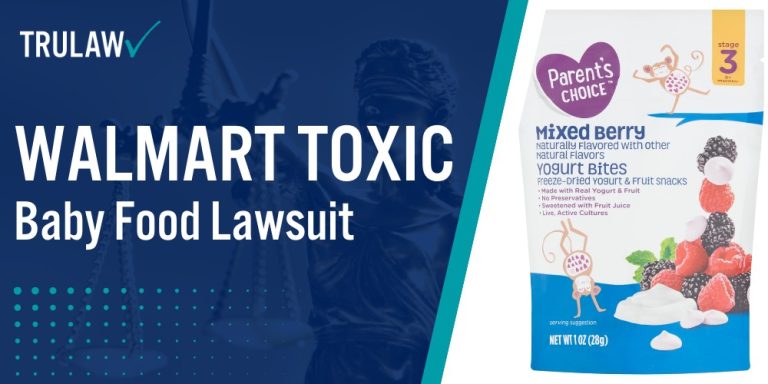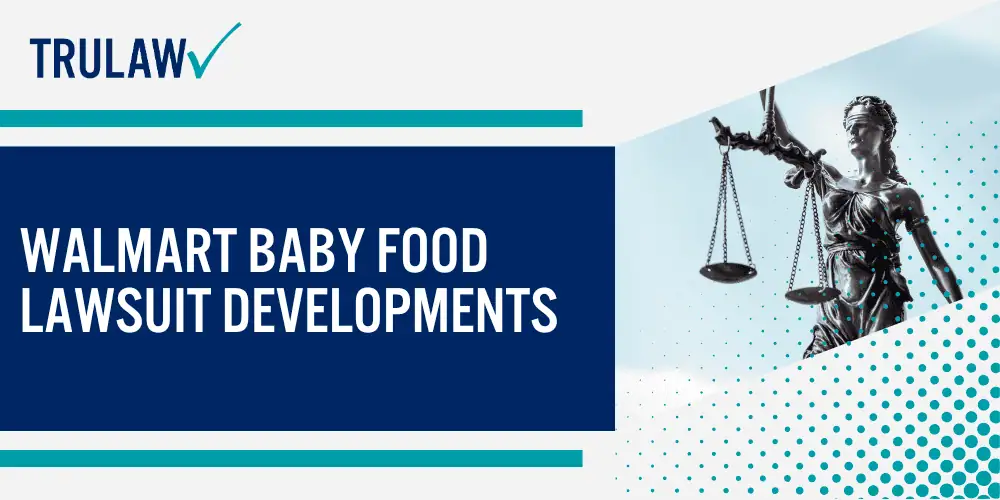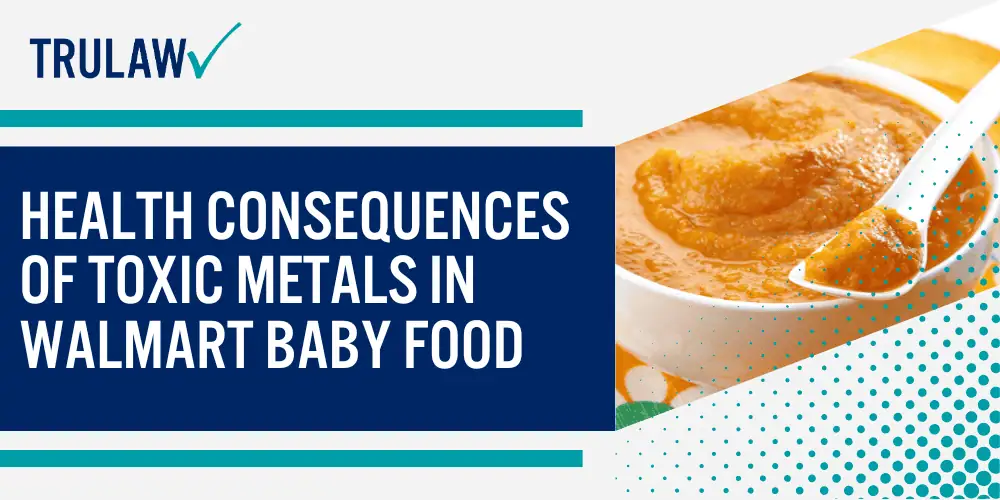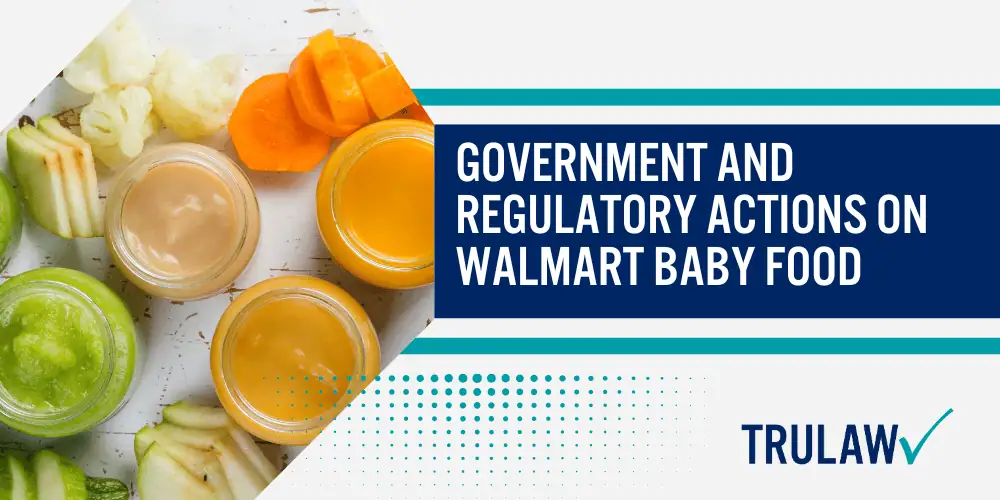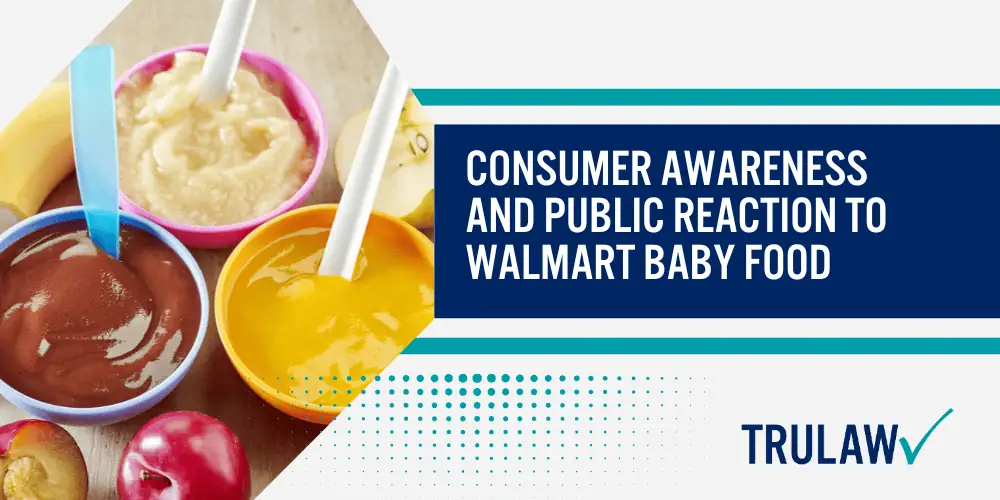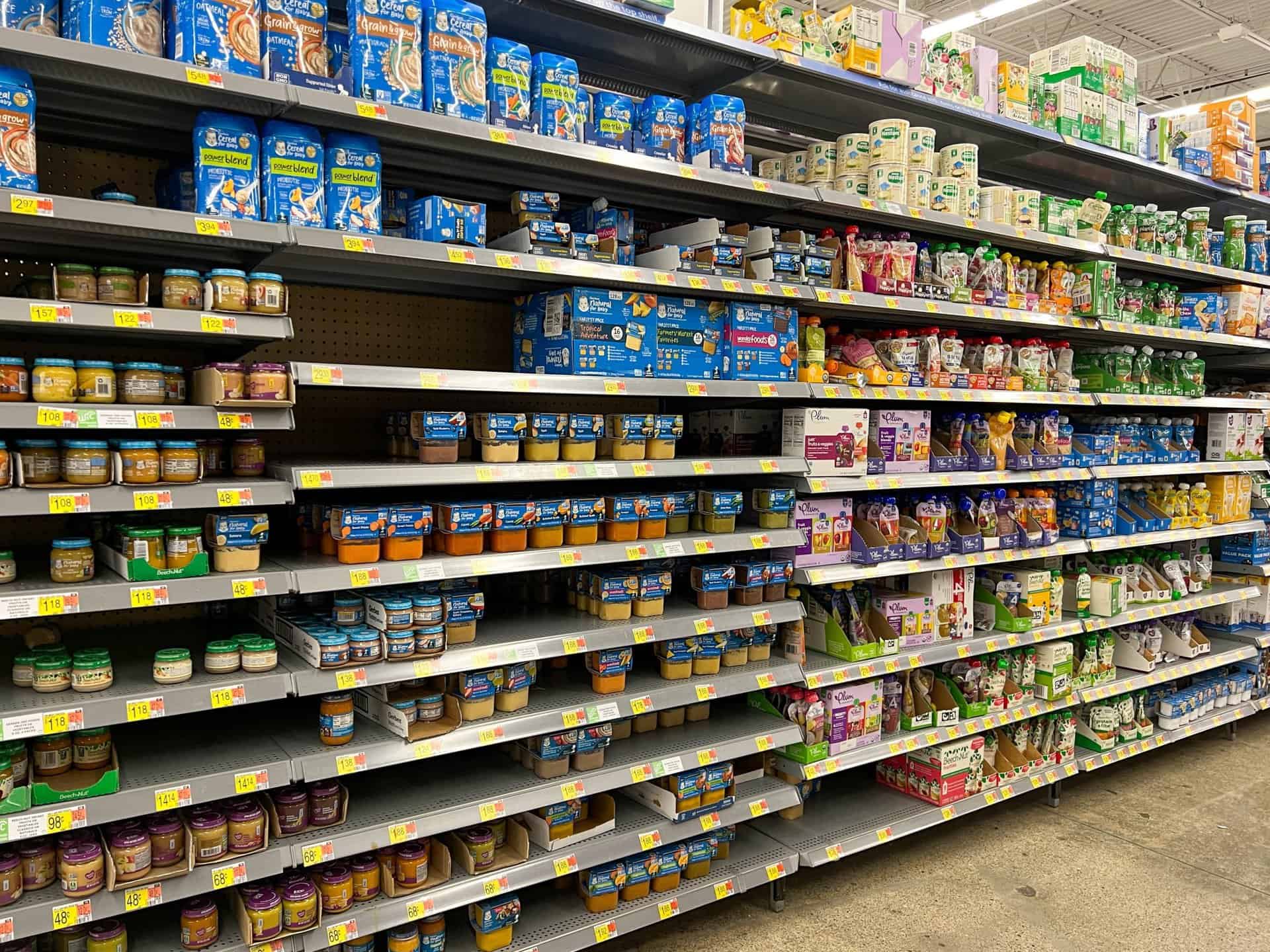The Walmart toxic baby food lawsuit is part of a broader legal battle against several major baby food companies, alleging that their products contain harmful levels of toxic heavy metals, including lead, arsenic, cadmium, and mercury.
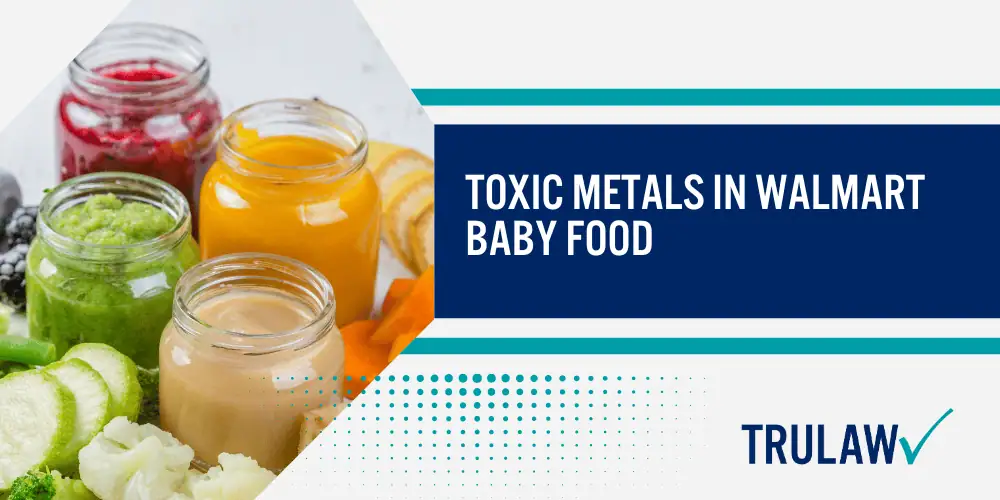
As one of the largest retailers in the United States, Walmart’s involvement in this controversy has drawn significant attention and raised concerns about the safety of baby foods sold by the company.
Toxic Metal Contamination Levels in Walmart Baby Food Products
Investigations have revealed that some baby food brands sold by Walmart contain alarming levels of toxic heavy metals.
These contaminants have been found at concentrations that exceed what experts and regulatory bodies consider safe for consumption, particularly by infants and young children who are most vulnerable to their harmful effects.
The presence of these metals in Walmart’s baby food has prompted a series of baby food lawsuits against the company, with plaintiffs claiming that Walmart failed to ensure the safety of its products and adequately warn consumers about the potential risks of tainted baby food.
Studies Linking Walmart Baby Food to Health Risks
Several scientific studies have highlighted the potential health risks associated with the consumption of tainted baby food containing high levels of toxic metals, including those sold by major baby food manufacturers such as Walmart.
Research has shown that even low-level exposure to these contaminants during early childhood can lead to severe health consequences, such as neurodevelopmental disorders, cognitive impairments, and behavioral issues.
As more evidence emerges linking toxic metal exposure to long-term health problems, the allegations against Walmart and other baby food companies have gained traction, emphasizing the need for stricter safety standards and more transparent labeling practices.
